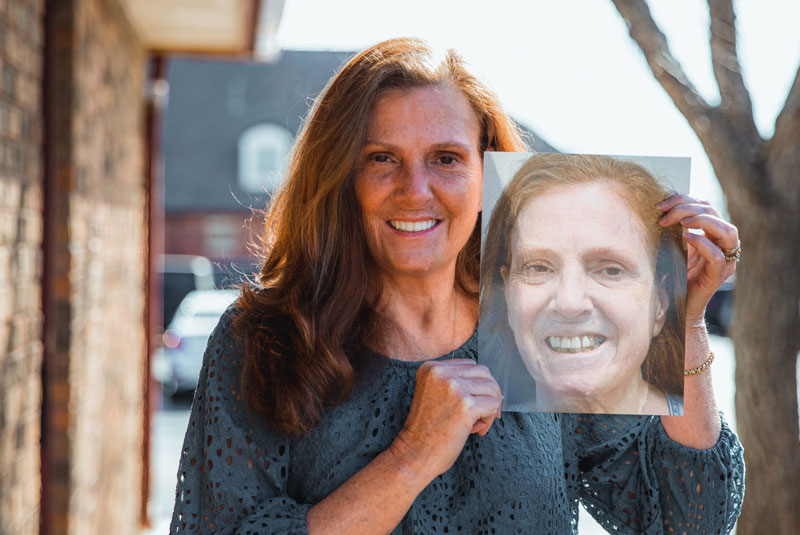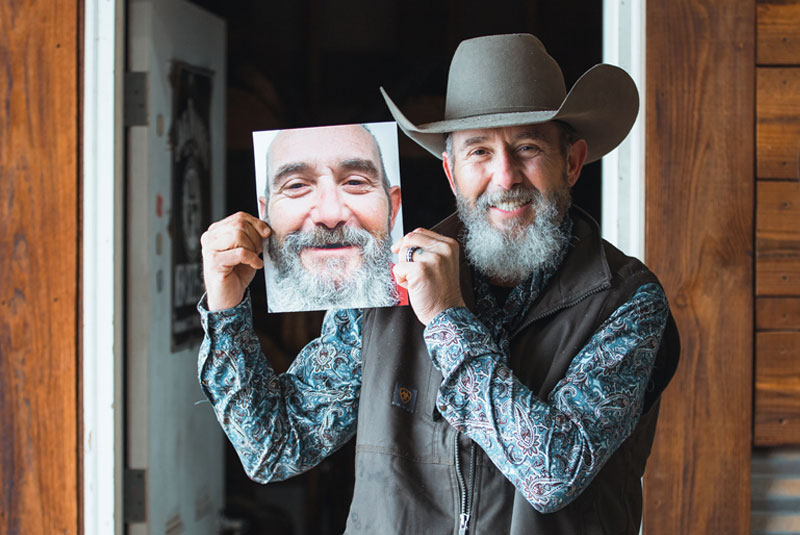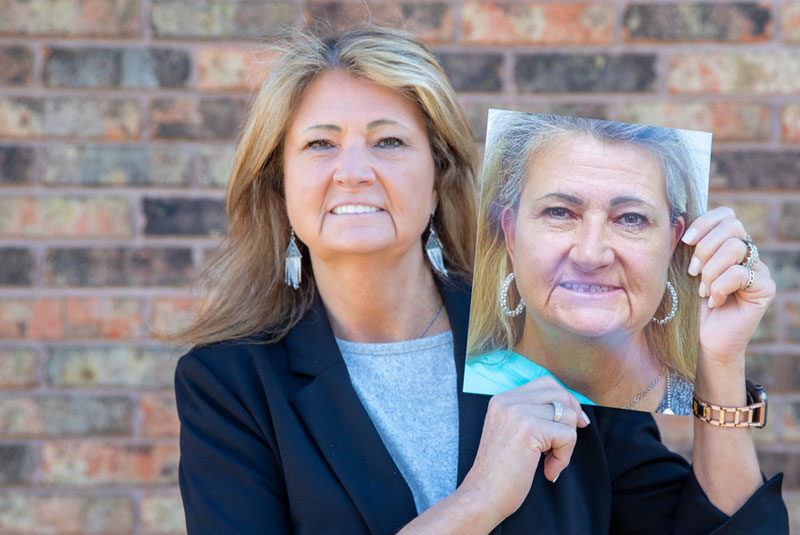Dental Implant Sedation Options
Sedation Dentistry Can Help You
Maintain a Healthy Smile and Life

Soothing Dental Anesthesia Takes the Fear Out of Oral Surgery
If dental fear or anxiety are preventing you from restoring your smile, you’re not alone. According to research, between 50 and 80% of adults in the U.S. have some degree of dental anxiety. Of these, more than 20% don’t see a dentist regularly, while an estimated 9 to 15% avoid care altogether. The physiological response in people with dental anxiety includes an increased heart rate, blood pressure, respiratory rate and even digestive issues—before or during treatment. This can cause various issues, such as reduced pain tolerance, slower recovery and a greater risk of post-treatment pain and complications. At Rain Dental Implant Centers, our oral surgeons have decades of experience, advanced training in all types of dental anesthesia and the caring touch to make patients feel comfortable. If you’re looking for soothing sedation anesthesia near you, ask about our dental anesthesia options to ease your anxiety and make procedures such as full mouth dental implants more pleasant.
Experience Rain Dental
Implant Centers Difference
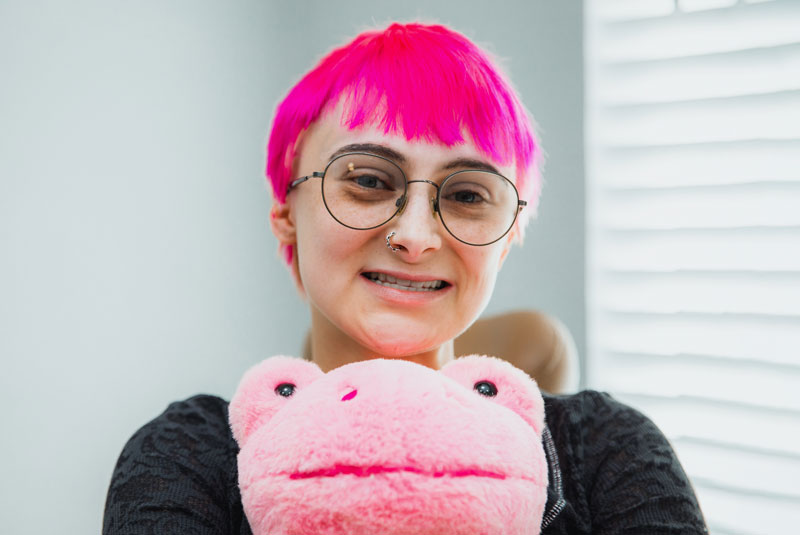
Who Can Benefit from Sedation Dentistry?
- Any degree of dental anxiety/fear
- Overly sensitive gag reflex or teeth
- Low pain threshold
- Need for multiple complex treatments
- Past traumatic dental experiences
- Aversion to the noises, smells and tastes associated with dentistry

Dr. Jensen Talks About Why Experience Matters When It Comes To Dental Implants
Soothing Sedation Dentistry Options
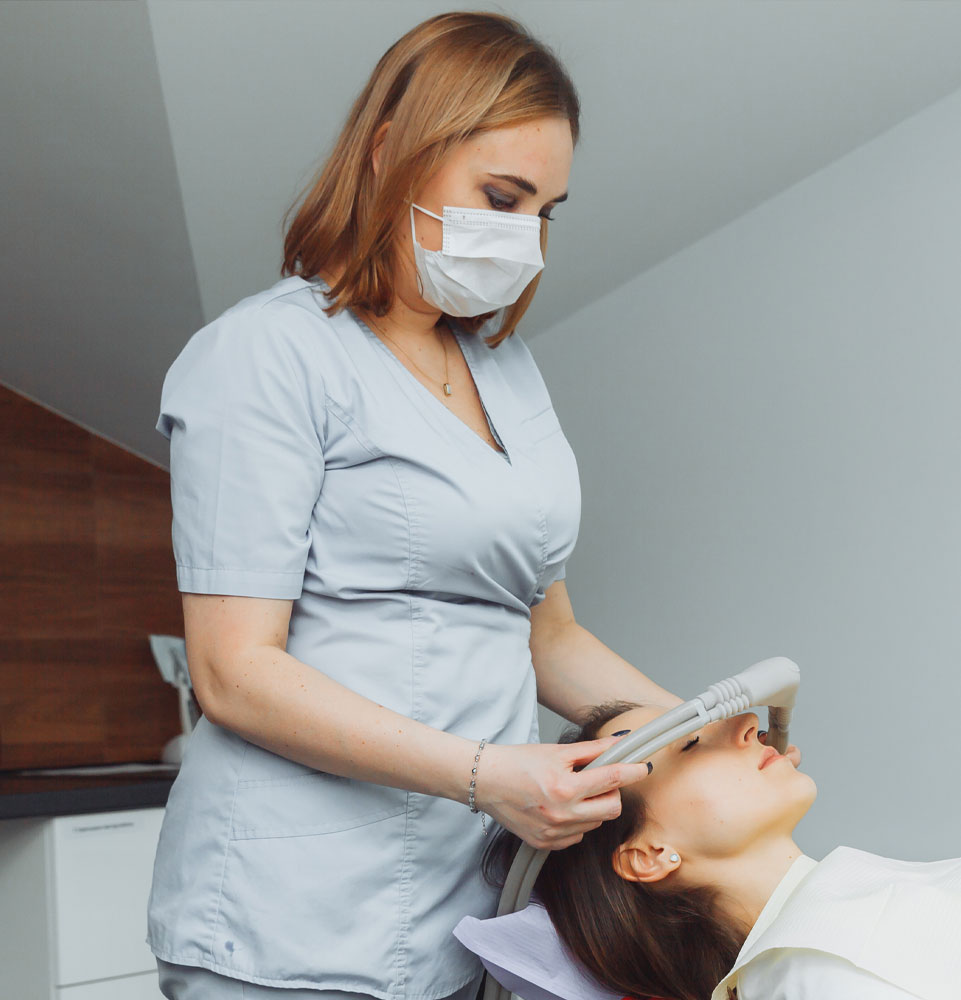
General Anesthesia Training and Licensing Helps Ensure Patient Safety
To administer general anesthesia in the office, an oral surgeon must complete at least three months of hospital-based anesthesia training, then undergo an in-office evaluation by a state dental board-appointed examiner. The examiner observes an actual surgical procedure during which general anesthesia is administered to a patient, inspects all monitoring devices and emergency equipment and tests the doctor and surgical staff on anesthesia-related emergencies. Our oral surgeons have successfully completed this evaluation process and are licensed to administer general anesthesia. The license is renewed every two years as long as required continuing anesthesia credits are completed.


How Does Dental Fear
Impact Your Health?
Unfortunately, avoiding professional dental care can lead to pain, oral and general health problems, worsening anxiety and the need for more complex and costly procedures. Bad oral bacteria can make teeth more prone to decay and gum disease. If gum disease advances to periodontitis, bacteria can spread to other parts of the body, causing systemic infections and complications, especially if you have diabetes, respiratory disease or heart disease. With affordable and soothing sedation dentistry, comfortable and clinically excellent oral surgery is a phone call away. From explaining everything you need to know about your procedure to delivering precision surgery with sedation, our entire team strives to deliver an oral surgery experience that exceeds your expectations.

